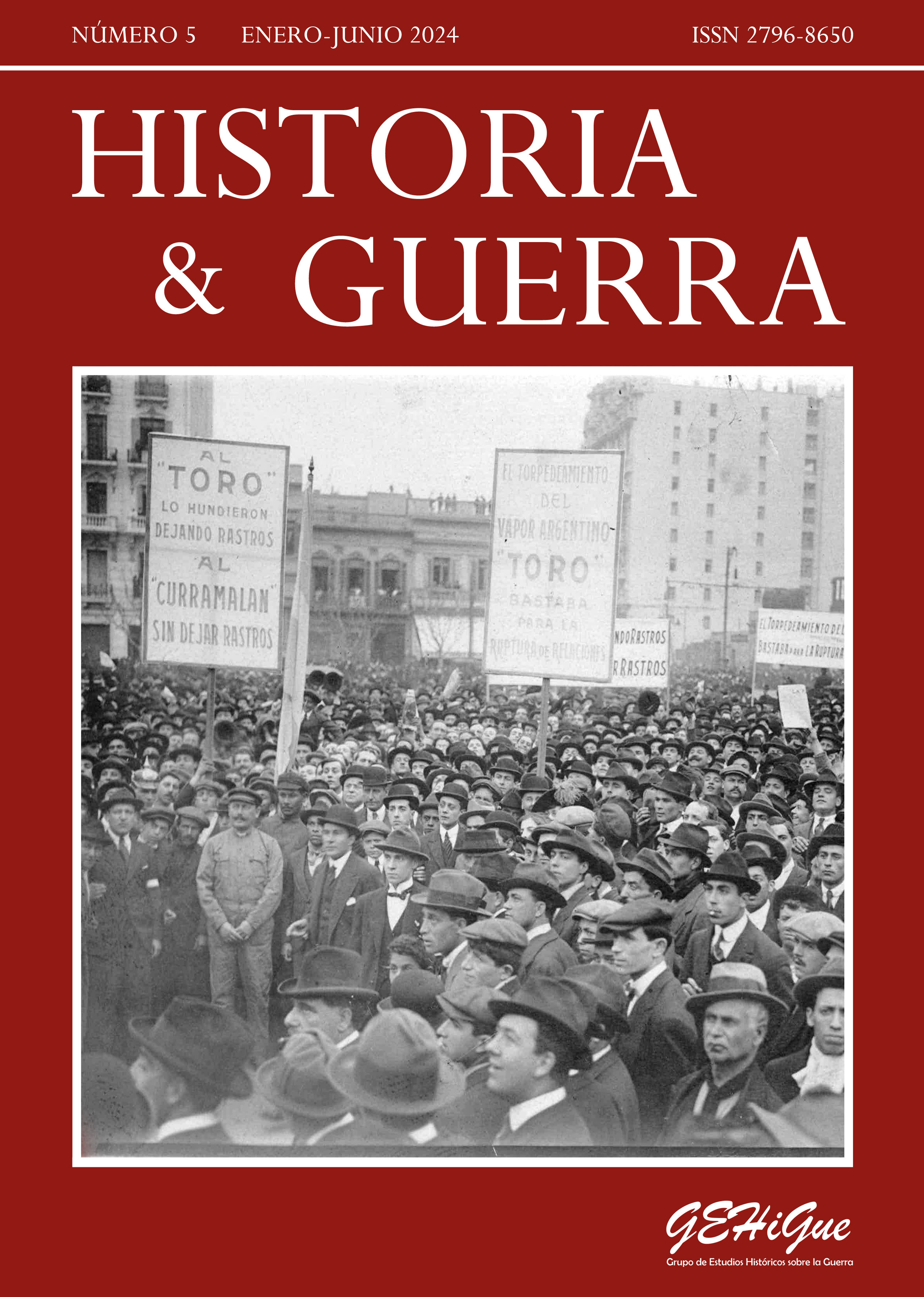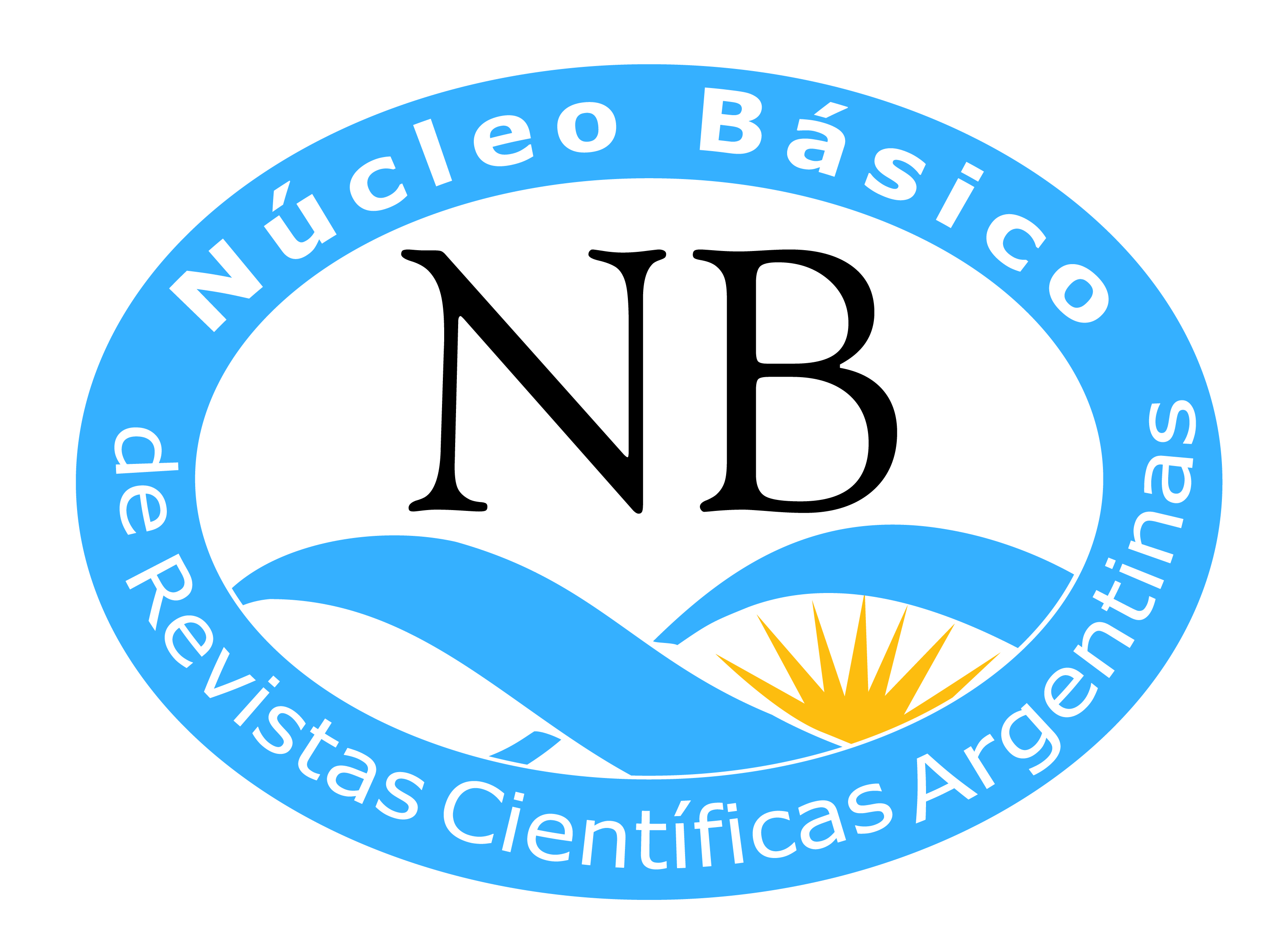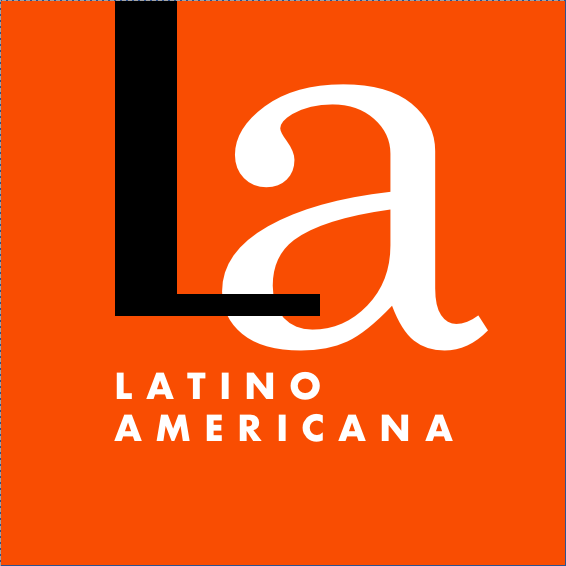United States Participation in the Lake Maracaibo Naval Campaign (May-July 1823)
Abstract
Along with the naval operations that were being carried out between Puerto Cabello and Maracaibo in 1823, within the framework of the war of independence in northern South America, the United States, the United Kingdom and France were carrying out “anti-piracy” operations mainly against Spanish nationals in Cuba and Puerto Rico, with the month of April of that year being the moment of greatest intensity. Considering the participation of American privateers in the nascent formation of the Venezuelan and then Colombian navy, we have considered it pertinent to assess the scope of the participation of American nationals based on the hypothesis that there was a direct and indirect political intention to help the Colombian independence cause. To do this, considering the limited existence of sources on the subject, we are going to examine their performance in the battle of Isla Larga (Puerto Cabello) on May 1, 1823 and then we will analyze their participation as members of the Colombian national squad that forced the Maracaibo bar and defeated the royalist naval forces on July 24, 1823, impacting naval operations in the Caribbean Sea.Downloads
References
Blanco, E. et al. (coord.). (2023). De la batalla naval del Lago de Maracaibo a la liberación: la máquina de guerra marítima y el aparato de captura liberal en aguas hispanoamericana. Editorial Rivero-Blanco.
Brown, M. (2004). Impious Adventurers? Mercenaries, Honour and Patriotism in the Wars of Independence in Gran Colombia [Tesis doctoral]. University College London.
Daughan, G. (2013). The shining sea: David Porter and the epic voyage of the U.S.S. Essex during the War of 1812. Basic Books.
Deleuze, G. y Guattari, F. (2008). Mil Mesetas. Capitalismo y Esquizofrenia (8 ed.). Pre-Textos.
Frasquet, I., Rújula, P. y París, Á (eds.). (2022). El Trienio Liberal (1820-1823). Balance y perspectivas. Universidad de Zaragoza.
Gámez, F. (2002). Corsarios en las guerras de independencia de Hispanoamérica entre el patriotismo y la delincuencia en A. Ramos Santana (ed.), La ilusión constitucional: pueblo, patria nación. De la Ilustración al Romanticismo. Cádiz, América y Europa ante la modernidad. 1750-1850 (pp. 251-262). Publicaciones de la Universidad de Cádiz.
Gerberich, A. (1928). A Forgotten Episode of History: The Battle of Lake Maracaibo. The Pennsylvania Magazine of History and Biography, 52(1), 78-86.
Green, A. (2019). The private Navy of the United States: The effects of Privateers on the War of 1812 [Tesis de maestría]. James Madison University.
Grummond, J. L. (1999). Renato Beluche: Smuggler, Privateer, and Patriot, 1780-1860. LSU Press.
Guerra, M. (1982). Los corsarios insurgentes en la independencia de América (1808-1824). Boletín del Instituto Riva-Agüero, (12), 93-136.
Harrison, B. L. (2017). For Fate and Fortune: American Privateers in the War of 1812. The general, 2, 18-29.
Hopkins, F. (2008). For Freedom and Profit: Baltimore Privateers in the Wars of South American Independence. The Northern Mariner Le Marin Du Nord, 18(3-4), 93-104.
Keegan, J. (2013). El rostro de la batalla. Una historia militar desde el “punto de máximo peligro”. Turner Noema.
Long, D. (1970). Nothing too Daring. A Biography of Commodore David Porter, 1780-1843. United States Naval Institute.
Madueño, J. (2012). El Combate Naval del Lago de Maracaibo. Cuaderno del Instituto de Historia y Cultura Naval, (65), 51-81.
Madueño, J. (2018). Ángel Laborde y Navarro. Real Academia de la Historia. https://dbe.rah.es/biografias/15601/angel-laborde-y-navarro
Maita, J. (2023). Poder Naval de la República de Colombia 1823-1830 (Tomo I y II). Editorial El Perro y la Rana.
Mateos, A. (2023). La adaptación de un diplomático al tiempo de Guerras de Independencia y revolución liberal. Luis de Onís ante el expansionismo de Estados Unidos y la emancipación de Iberoamérica, 1809-1822. Tzintzun. Revista de Estudios Históricos, (77), 67-95.
Medina, C. (1924). Por los Vericuetos de la Historia: asuntos hispano-americanos. Tipografía Excelsior.
Ortega, E. (1998). Bloqueo, rendición y ocupación de Maracaibo por la Armada Colombiana al mando del Almirante D. José Padilla (2ª ed.). Armada de Colombia.
Silverstone, P. H. (2001). The Sailing Navy, 1775-1854. Naval Institute Press.
Terrien, N. (2019). Essai de géographie historique de la Caraïbe révolutionnaire (fin XVIIIe s.-ca. 1820). Nuevo Mundo Mundos Nuevos. https://doi.org/k5zj
Torrejón, J. (2009). Emancipación de Hispanoamérica y guerra económica: La actividad corsaria. Revista General de Marina, 257, 223-236.
Tucídides. (423 a. C. [1984]). Guerra del Peloponneso (4ª ed.). Garzanti.
Wombwell, A. J. (2010). The Long War Against Piracy: Historical Trends. Combat Studies Institute Press.
Copyright (c) 2024 Edgar Enrique Blanco Carrero

This work is licensed under a Creative Commons Attribution-NonCommercial 4.0 International License.

Historia & Guerra uses an international license Attribution-NonCommercial 4.0 International (CC BY-NC 4.0).
You are free to:
- Share — copy and redistribute the material in any medium or format.
- Adapt — remix, transform, and build upon the material.
- The licensor cannot revoke these freedoms as long as you follow the license terms..
Under the following terms:
Attribution — You must give appropriate credit, provide a link to the license, and indicate if changes were made. You may do so in any reasonable manner, but not in any way that suggests the licensor endorses you or your use.
NonCommercial — You may not use the material for commercial purposes.
No additional restrictions — You may not apply legal terms or technological measures that legally restrict others from doing anything the license permits.
Notices:
You do not have to comply with the license for elements of the material in the public domain or where your use is permitted by an applicable exception or limitation.
No warranties are given. The license may not give you all of the permissions necessary for your intended use. For example, other rights such as publicity, privacy, or moral rights may limit how you use the material.
The author retains all rights to his work without restriction and grants Historia & Guerra the right to be the first publication of the work. Likewise, the author may establish additional agreements for the non-exclusive distribution of the version of the work published in the Journal (for example, placing it in an institutional repository or publishing it in a book), with the acknowledgment of having been first published in this journal. Use of the work for commercial purposes is not permitted.














.jpg)















